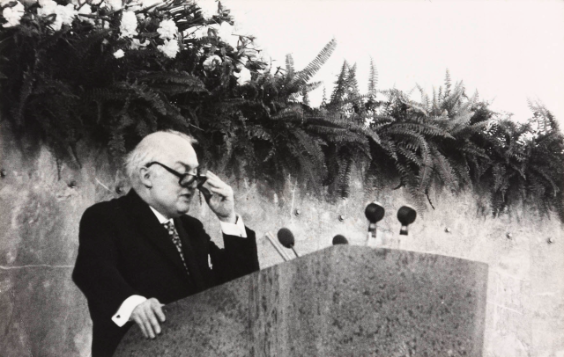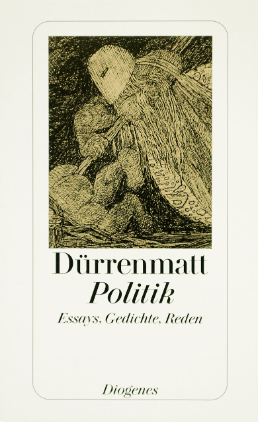Friedrich Dürrenmatt was a born speaker, with a knack for surprising turns of speech that unfailingly captured his audience. He developed and set forth a large share of his dramaturgical ideas in lectures given at various awards ceremonies, notably twice at the Schiller Prize awards ceremony (1959 and 1985) and that of the Büchner Prize (1986). His lecture on "Theatre Problems" in 1955 set out the foundations of his dramaturgical approach.
In around 1968, he began taking political stands when speaking publicly, referring to such international issues as the conflicts in Israel in respectively 1968, 1974 and 1975, or the invasion of Czechoslovakia in 1968.
He was an inveterate provocateur in Swizerland, calling into question the country's cultural policy at a speech upon the occasion of the City of Bern's Literature Prize in 1969, and adding insult to injury by handing the prize over to an anti-establishment journalist and a civil-service pioneer. On another occasion, towards the end of his life, he turned a speech in honour of Czechoslovakian president Vaclav Havel into a condemnation of Switzerland's secret files scandal, comparing his homeland to a prison made up of voluntary prisoners and jailers.
Dürrenmatt was in the habit of extensively reworking and expanding his speeches for publication purposes, often erasing the boundaries between lecture and essay pieces.



